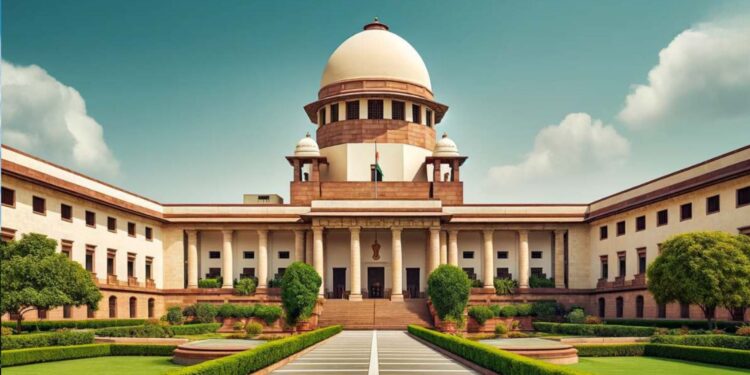the Supreme Court granted interim relief to journalist Mamta Tripathi, who has been booked in multiple criminal cases for posting on X (formerly Twitter) about caste dynamics in appointments within the Uttar Pradesh administration (*Mamta Tripathi v. State of Uttar Pradesh and Another*).
A bench comprising Justices BR Gavai, Prashant Kumar Mishra, and KV Viswanathan ruled that no coercive action should be taken against Tripathi. The Court also issued a notice to the Uttar Pradesh government, seeking its response to Tripathi’s plea to quash four First Information Reports (FIRs) lodged against her.
“Issue notice to the respondent. In the meantime, no coercive action will be taken against the petitioner in the cases against her,” the Court stated in its order.
During the hearing, Senior Advocate Siddharth Dave, representing Tripathi, informed the Court that another journalist, Abhishek Upadhyay, had been granted protection in a related case. Dave argued that, unlike Upadhyay who faced only one FIR, Tripathi was facing four FIRs for similar allegations.
Acknowledging this, the Court proceeded to grant interim protection to Tripathi. Earlier, on October 4, the Supreme Court had granted protection to Lucknow-based journalist Abhishek Upadhyay in the same case.
In its previous ruling, the Court commented on the protection of journalists’ rights under Article 19(1)(a) of the Constitution, emphasizing that a journalist cannot be criminally prosecuted merely for writing content critical of the government. “In democratic nations, freedom to express one’s views is respected. The rights of journalists are protected under Article 19(1)(a) of the Constitution of India. Merely because a journalist’s writings are perceived as criticism of the government, criminal cases should not be filed against them,” the Court had observed.
The FIRs against Upadhyay and Tripathi were related to posts on X (formerly Twitter) discussing caste dynamics in the Uttar Pradesh administration. Upadhyay’s post, titled “Yadav Raj versus Thakur Raj (or Singh Raj),” compared caste influence during the tenures of former Chief Minister Akhilesh Yadav and current Chief Minister Yogi Adityanath, alleging a preference for individuals from the Thakur community in government appointments.
Both Upadhyay and Tripathi faced FIRs under several sections of the Bharatiya Nyay Sanhita (BNS), including Sections 353(2) (hate speech), 197(1)(C) (statement against national integration), 302 (hurting religious feelings), 356 (defamation), as well as under Section 66 of the Information Technology (Amendment) Act, 2008. These FIRs were based on a complaint filed by one Pankaj Kumar. Tripathi’s plea seeks to quash not only this FIR but also three other cases filed against her.

















